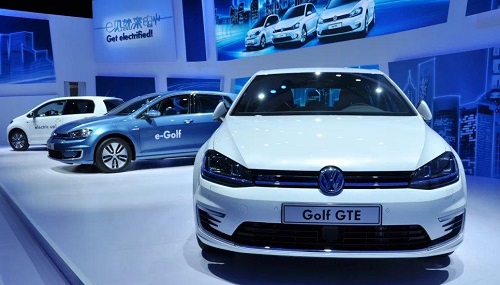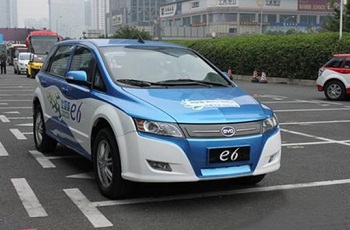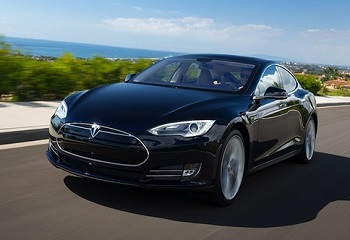The Chinese Electric Car Revolution
By Tracy Hall
 People have been talking about electric cars for decades. They are, of course, the most obvious solution to the traditional gasoline powered vehicles that have plagued the world over the last century or so. However, up until fairly recently the prospect of electric cars taking a large chunk of the global automobile market was a distant pipedream. That has largely been because until relatively recently the efficiency and the pricing were simply not competitive with petroleum fuelled cars. Nowadays however it is possible to get your hands on a very fast and cost effective electric car that is not overly pricy.
People have been talking about electric cars for decades. They are, of course, the most obvious solution to the traditional gasoline powered vehicles that have plagued the world over the last century or so. However, up until fairly recently the prospect of electric cars taking a large chunk of the global automobile market was a distant pipedream. That has largely been because until relatively recently the efficiency and the pricing were simply not competitive with petroleum fuelled cars. Nowadays however it is possible to get your hands on a very fast and cost effective electric car that is not overly pricy.
For the last few years there has been a fairly quiet but nevertheless game-changing move towards electric cars. But until now China's market share of the global electric car market has been less than 1 percent. Last year it was 0.84% to be precise, which put the country behind nine of the developed European economies in terms of overall market share. However, that is going to change in a big way, and when it does it will undoubtedly change the entire electric car industry as a whole. Commentator Stephen Edelstein has pointed out that, "Chinese sales exploded from 61,984 in 2014 to 214,283 in 2015 and that last year, China's BYD alone sold 61,772 highway-capable battery-electric cars and plug-in hybrids-more than any automaker in the world".
Even in spite of China's huge population, these figures are truly remarkable and they are very encouraging for the electric car industry. That is because as demand from the humongous Chinese consumer market increases it will inevitably push down manufacturing costs. Historically the industry has had problems getting enough investment, building strategic partnerships and finding ways to produce batteries and other key components cheaply enough to make the finished products competitive in the broader automobile industry. Increased consumer demand, in conjunction with more government backing, technological improvements and corporate collaborations from China alone will certainly give the industry a much needed shove in the right direction, which ultimately should change the economic landscape elsewhere.
 The need to tackle China's inner city environmental problems provides a great source of motivation for Chinese consumers to buy electric vehicles and for the Chinese government to incentivise producers. For their part the government has put forward a wide range of policy measures aimed at incentivising manufacturers and consumers in recent years. This includes everything from strategic tax breaks to setting ambitious targets like having 5 million electricity-powered vehicles on Chinese roads by 2020, which is 8 times more than there are at present. Another one of the key policies, which has already been implemented in Beijing and elsewhere, is allowing people who buy an electric vehicle to get a registration plate almost immediately. This is in stark contrast to the weeks and months it usually takes Chinese motorists to get their hands on one. This move alone is a good incentive for new drivers in particular to opt for a greener alternative.
The need to tackle China's inner city environmental problems provides a great source of motivation for Chinese consumers to buy electric vehicles and for the Chinese government to incentivise producers. For their part the government has put forward a wide range of policy measures aimed at incentivising manufacturers and consumers in recent years. This includes everything from strategic tax breaks to setting ambitious targets like having 5 million electricity-powered vehicles on Chinese roads by 2020, which is 8 times more than there are at present. Another one of the key policies, which has already been implemented in Beijing and elsewhere, is allowing people who buy an electric vehicle to get a registration plate almost immediately. This is in stark contrast to the weeks and months it usually takes Chinese motorists to get their hands on one. This move alone is a good incentive for new drivers in particular to opt for a greener alternative.
As a result of this anticipated surge in demand there are more and more companies looking to take a slice of the profits in China. At the forefront of the Chinese electric car industry is domestic firm BYD. Based in Xi'an, this plug-in hybrid and fully electrical car manufacturer has long been a rising star in the auto industry. The firm currently manufactures a very broad range of different vehicles, including the new fleet of electric taxis that can be seen scooting around Shenzhen. In the coming years BYD is expecting to make many more times its current annual revenue. "We can see that more and more people already accept the new technology," said Michael Shu, general manager of BYD Auto Sales.
BYD are definitely well placed to be the market leader in this sector. However, they will be facing stiff competition from international competitors. Volkswagen AG plans 15 new-energy models over 3-5 years, its China chief told a green car conference in Beijing on Saturday, predicting - like the government - that Chinese production of electric and plug-in hybrid vehicles would grow almost six times to 2 million annually by 2020. Other big names like Tesla are also banking on big sales growth in China. The key question is whether BYD and other domestic firms can leverage their 'home team advantage', their strategic partnerships and attract the brightest minds in order to keep up with their foreign rivals.
 While this new trend is great for the environment, and potentially consumers if and when prices go a lot lower, there are some sceptics. One of the main concerns that commentators and industry insiders have voiced is that China doesn't have the infrastructure available for the large scale charging of electric cars. "Chinese consumers generally live in large apartment buildings, not in standalone homes where they can more easily have a charging solution," said James Chao, with the consulting firm IHS Automotive. "One of the conundrums for the EV buyer here is 'where do you charge it?'". If China and other countries can't overcome this basic but critical obstacle then it will severely limit the desirability of owning an electric car.
While this new trend is great for the environment, and potentially consumers if and when prices go a lot lower, there are some sceptics. One of the main concerns that commentators and industry insiders have voiced is that China doesn't have the infrastructure available for the large scale charging of electric cars. "Chinese consumers generally live in large apartment buildings, not in standalone homes where they can more easily have a charging solution," said James Chao, with the consulting firm IHS Automotive. "One of the conundrums for the EV buyer here is 'where do you charge it?'". If China and other countries can't overcome this basic but critical obstacle then it will severely limit the desirability of owning an electric car.
It will take some time for the infrastructure to catch up with the demand. There are other issues to consider as well, such as making sure that the electricity that is being used to power these futuristic vehicles is generated in a cleaner way than it has been in the past. After all, it more or less defeats the point if reducing the amount of carbon producing cars on the city streets requires more coal power stations. On the whole though, one has to remain optimistic about the future of electric cars. The fundamentals are looking better by the day and they are one of the major bastions of hope for those of us urban dwellers who spend a significant portion of the day worrying about smog.
---END---